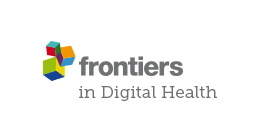IIOT
Editorial: Advancing surgical care with AI, robotics

Current literature shows artificial intelligence (AI) is no longer a distant concept in surgical care. Innovative medtech has entered clinical practice with measurable impact, although the field remains in early stages of implementation—promising in scope, but still facing challenges with data quality, reproducibility, and integration. For instance, a 2024 systematic…
Building trust in AI, making it work for perioperative nurses

Artificial intelligence (AI) has made inroads into nearly every area of healthcare. With nursing shortages continuing—marked by the loss of some 100,000 nurses following the COVID-19 pandemic and projected deficits of 20% or more in some states—AI-based tools that improve access to information, streamline efficiency, monitor patients, track procedures, and…
Telehealth in limbo: Providers split on continuing Medicare services during shutdown

Editor's Note Telehealth providers are divided over whether to continue serving Medicare patients after reimbursement expired alongside the federal government shutdown, Modern Healthcare October 9 reports. The impasse has forced organizations to weigh patient access against financial risk, with many issuing advance beneficiary notices warning patients they may be responsible…
How digital tools help nurse leaders retain expertise, stabilize staffing, sustain efficiency

Perioperative leaders face a workforce transition unlike any in recent memory. By 2030, all baby boomers will have reached retirement age, and many veteran perioperative nurses are already exiting, taking with them decades of institutional knowledge. At the same time, the expectations of today’s workforce have shifted, placing greater value…
FDA issues Class I alert for Abiomed Impella heart device over cybersecurity risks

Editor's Note The Food and Drug Administration (FDA) on October 10 classified a cybersecurity correction involving Abiomed’s Automated Impella Controller as a Class I recall, the most serious type, according to the FDA Medical Device Recalls and Early Alerts database. While devices are not being removed from clinical settings, the…
AI is transforming nursing practice but demands stronger ethics, training

Editor's Note Artificial intelligence (AI) is rapidly reshaping nursing informatics and clinical practice, improving patient monitoring, care planning, and workflow efficiency, yet both opportunities and risks are mounting. According to March 2025 reviews published in International Nursing Review and in Frontiers in Digital Health, AI integration promises significant gains in…
Government shutdown stalls healthcare access, freezes Medicare telehealth, hospital-at-home services

Editor's Note A federal shutdown has halted critical healthcare programs, disrupted Medicare telehealth and hospital-at-home coverage, and escalated partisan conflict over the Affordable Care Act (ACA) and Medicaid, multiple outlets report, including HealthLeaders October 1 and KFF Health News. The budget impasse reportedly is leaving both patients and providers in…
Surgical leaders urged to weigh risks, rewards of innovation with a critical eye

Editor's Note Innovation is transforming surgical care faster than most institutions can keep pace, but leaders must distinguish between investments that advance patient care and those that add cost without meaningful benefit. That is the central message from a September 8 Harvard Medical School article featuring insights from Jon O.…
AI vendors bet on guaranteed ROI as competition with Epic intensifies

Editor's Note Startups selling artificial intelligence (AI) tools to hospitals are putting money on the line, offering guaranteed returns in a bid to win business from Epic and other entrenched vendors, Modern Healthcare September 16 reports. Several AI companies are reportedly restructuring their pricing strategies to reassure buyers and prove…
AI in the OR can sharpen skills, but humans make the lessons stick

Editor's Note Artificial intelligence (AI) can track surgical performance with pinpoint accuracy, but true mastery still requires a human teacher, American Council on Science and Health August 20 reports. A randomized trial of an AI-powered surgical tutoring system found that while algorithms provided real-time error detection, the best learning happened…

 Free Daily News
Free Daily News